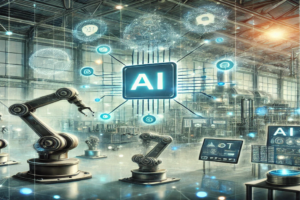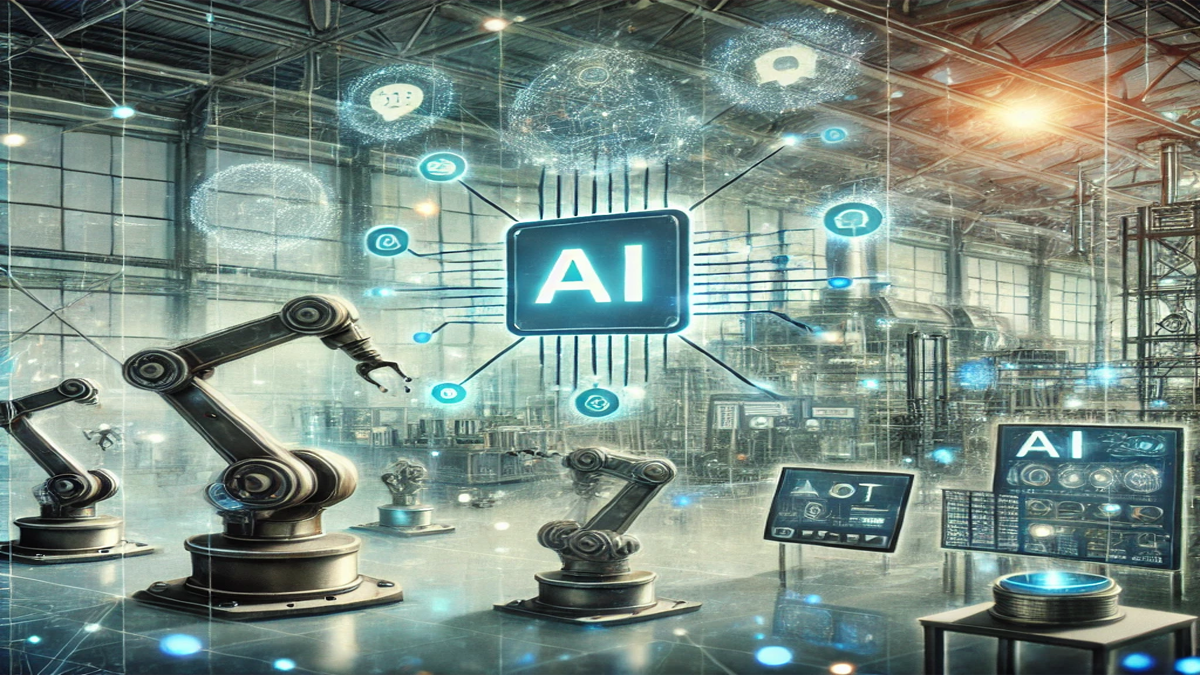Artificial Intelligence (AI) is revolutionizing industries worldwide, and manufacturing is no exception. With its ability to enhance efficiency, reduce costs, and unlock unprecedented opportunities, AI is spearheading a new era of manufacturing innovation. This article delves into the profound impact of AI on manufacturing, the technologies driving the change, and the future it promises.
Understanding AI in Manufacturing
AI in manufacturing involves using advanced algorithms and machine learning to automate processes, optimize workflows, and predict outcomes. From production line automation to quality control, AI empowers manufacturers to meet rising demands with precision and speed.
Applications of AI in Manufacturing Innovation
Predictive Maintenance:
AI-powered systems analyze machinery data to predict maintenance needs, reducing downtime and preventing costly breakdowns.
Quality Assurance:
AI detects defects with unparalleled accuracy, ensuring high-quality output and reducing waste.
Supply Chain Optimization:
By analyzing market trends and logistical data, AI enhances inventory management, supplier coordination, and delivery schedules.
Robotics in Production:
Smart robots, driven by AI, perform repetitive and dangerous tasks with precision, improving safety and productivity.
Demand Forecasting:
AI analyzes consumer data and market trends to anticipate product demand, optimizing production schedules and inventory.
Benefits of AI in Manufacturing
Increased Efficiency: AI-driven automation streamlines workflows, boosting productivity.
Cost Reduction: By minimizing errors and waste, AI significantly reduces operational costs.
Enhanced Flexibility: Adaptive AI systems enable manufacturers to pivot quickly to market changes.
Sustainability: AI facilitates resource optimization, promoting eco-friendly practices.
Challenges and Solutions
High Implementation Costs: While initial investment is high, ROI from increased efficiency and reduced downtime offsets the expense.
Workforce Transition: Upskilling workers to collaborate with AI systems ensures a harmonious integration of human expertise and technology.
Data Security: Robust cybersecurity measures safeguard sensitive manufacturing data from breaches.
Case Studies of AI-Driven Manufacturing Innovation
- Tesla: Tesla employs AI in its Gigafactories for automation, predictive maintenance, and quality control, setting benchmarks in automotive manufacturing.
- Siemens: Siemens uses AI for intelligent robotics and process optimization, leading to cost-efficient production cycles.
- GE Aviation: GE leverages AI for predictive analytics, optimizing engine performance and maintenance schedules.
The Future of AI in Manufacturing
AI’s integration with emerging technologies like the Internet of Things (IoT) and 5G will further revolutionize manufacturing. Smart factories, characterized by autonomous systems and real-time data exchange, are set to become the industry norm. AI will also drive sustainable manufacturing by optimizing resource use and reducing carbon footprints.
Conclusion
AI in manufacturing is not just a technological advancement; it’s a transformative force reshaping the entire industry. By integrating AI solutions like predictive maintenance, robotics, and quality assurance systems, manufacturers can achieve unmatched efficiency, cost-effectiveness, and sustainability. Despite challenges such as high implementation costs and workforce adaptation, the benefits far outweigh the hurdles.
As industries continue to evolve, AI will play a pivotal role in driving innovation, fostering adaptability, and ensuring a sustainable future. Companies embracing this revolution are poised to lead the charge in setting new benchmarks for productivity and excellence in manufacturing.









